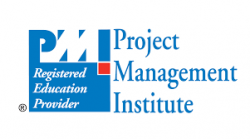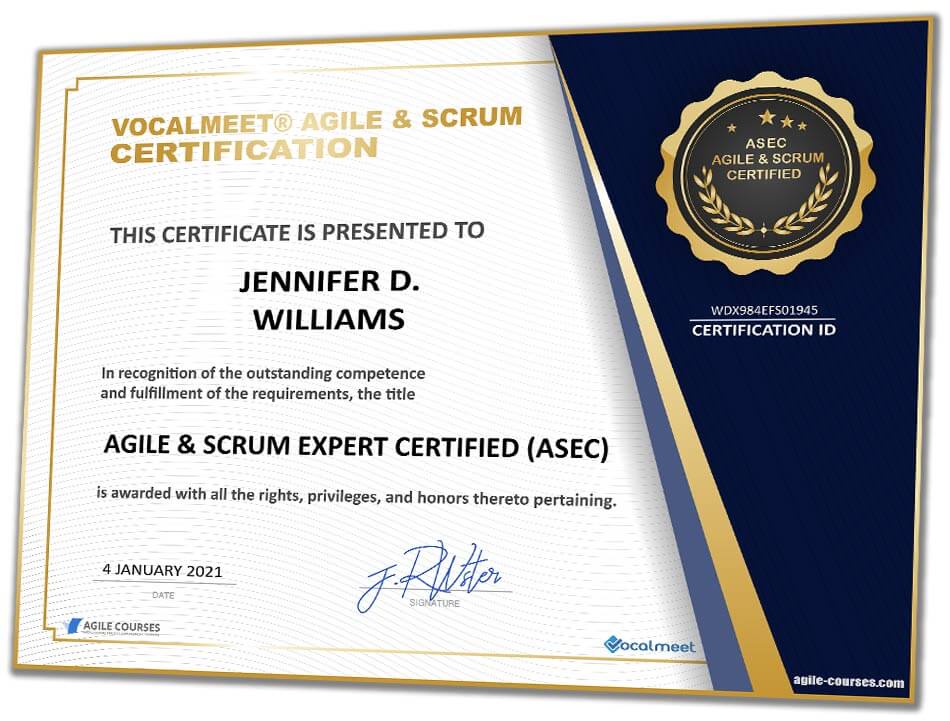Agile & Scrum Project Management (ASEC) Training and Certification Program
13258 Learners
100% On-Demand & Self-Paced
Gain a deep understanding of agile project management without the need to join live classes. Get access to all sessions instantly.
ASEC Certification Included
Become Agile & Scrum Expert Certified (ASEC) by simply passing the final exam included in this course.
100% Money-Back Guarantee
Vocalmeet offers a 30 day money back guarantee on agile-courses.com with no questions asked. Read more here.
Course Overview
Agile has gone mainstream and the movement towards agile adoption shows no signs of slowing down. Organizations worldwide continue to advocate for the the adoption of agile techniques in order to deal with rapid organizational and technology changes. Although traditional project management methodologies have been the standard for many years, the continued pace of change means that project managers and organizations alike need to adopt new ways of developing and implementing projects.
Effectively implementing agile practices requires a paradigm shift including a new mindset and new techniques. This course covers all the major topics needed to understand and master agile project management. The course begins by providing key foundational knowledge and then gradually builds on this knowledge to delve into core agile techniques and practices.
At the very end of the course you can complete the final exam to get the Agile & Scrum Expert Certification (ASEC).
Additionally, this course also covers all the topics needed to prepare for the PMI-ACP® Certification with over 100 additional knowledge and practice questions.
What You Will Learn
- Comprehensive understanding of best practices for working in agile teams and leading agile teams
- Understanding of how to develop an agile mindset and the benefits of a collective mindset as part of an embedded team
- In depth understanding of various agile frameworks and various techniques and practices of different frameworks
- Understanding of agile management vs. waterfall management
- Understanding of Minimum Viable Products and how to bring value to the customer through continuous improvement
- Understanding of how to utilize agile techniques to manage a project’s scope, timeline and budget
- Understanding of the role of iterations and how to develop in iterations
- Understanding of velocity and how to utilize real metrics to ensure continuous development and delivery
- Knowledge of in depth strategies for responding to change and delivering success even on difficult projects
- Knowledge of key mistakes to avoid when transitioning to agile
- Covers the topics needed to prepare for the PMI-ACP® Certification with over 250 optional knowledge and practice questions
Training & Certification Options
INDIVIDUAL / SELF-PACED
$399 $299
- 100% Online & Self-paced
- High-quality online content designed by industry experts
- Immediate course access
- Scenario-based learning with case studies and real-life examples
- ASEC Certification exam included
- Verifiable Certification ID
- Lifetime certification. No expiry
- 1 Year course access
- 24/7 support
TEAM or GROUPS
Group Discounts
Everything in self-paced plus
- Group of 2-4 individuals: 15% off for each enrollment
- Group of 5 individuals and more: 20% off for each enrollment
- No administrative burden: Team members can self-register
- Easy course access via Coupon codes
CORPORATE TRAINING
Customized to your needs
- Flexible pricing
- Dedicated Learning Management System (LMS) available
- Custom Branding / white labeling available
- Custom Exams available
- Custom Certificate available
- Advanced Dashboards, Reports and Learner Details
- 24/7 support
Course Outline. Full Course, 15 Modules.
One of the Most Complete Agile & Scrum Project Management Courses on the Market
Module 1 – Introduction - (17:50)
 History of Agile - (CLICK HERE FOR PREVIEW) (1:54)
History of Agile - (CLICK HERE FOR PREVIEW) (1:54) - Definition of Agile
- Agile Manifesto
Module 2 - High-Performing Teams - (43:03)
 Phases of Team Development - (CLICK HERE FOR PREVIEW) (7:07)
Phases of Team Development - (CLICK HERE FOR PREVIEW) (7:07)- Phases of Team Development
- Cross-Functional Teams
- Knowledge Sharing & Agile Teams
- Physical & Virtual Colocation
- Distributed Teams & Strengths of Diversity in Teams
- Divergent & Convergent Thinking
- Osmotic Communication & Information Radiators
- Characteristics of Agile Teams
- Conflict Resolution & Negotiation
- Progress-Interrupting Pitfalls
- System Thinking
Module 3 - Agile Leadership - (24:32)
 Servant & Adaptive Leadership - (CLICK HERE FOR PREVIEW) (6:53)
Servant & Adaptive Leadership - (CLICK HERE FOR PREVIEW) (6:53)- Key Functions of Agile Leadership
- 5 Power Words of Agile
- Introduction to Kaizen
Module 4 - Traditional Project Management - (11:18)
- Traditional/Waterfall Project Management
- Steps in Waterfall Project Management & Waterfall Process Group
Module 5 - Scrum - (35:48)
- The Three Roles in Scrum
- The Product Vision
- Minimum Viable Product (MVP) & the Product Backlog
- Increments in Scrum (Sprints)
- Iteration Review & Retrospective
Module 6 - Kanban - (15:57)
- Kanban
- Kanban Boards
- Core Principles of Kanban, Kanban Values, and Kanban Practices
- Work in Progress (WIP)
- Differences and Similarities between Kanban and Scrum
Module 7 - Other Agile Frameworks - (16:43)
- Pair Programming & the Benefits of Peer Programming
- Dynamic System Development Method
- Feature-Driven Development and Adaptive Software Development
- Lean and the 3 M’s of Lean
- Crystal Family
- Test-Driven Development
Module 8 - User Stories - (20:05)
- Definition of User Stories
- INVEST Criteria
- Personas, Acceptance Criteria & the Definition of Ready
- Definition of Done
- Story Splitting
Module 9 - Procurement - (21:37)
- Definition of Procurement
- How to Establish Needs and Choose a Vendor
- Items involved when Procuring Services
- Drafting a Contract
- How Procurement Can Vary from Company to Company
- Incorporating the Vendor and Company Teams
- How to Deal with the End of a Contract
Module 10 - Agile Planning - (21:18)
- Traditional Planning Vs. Agile Planning
- Emergent Design
- The Six Levels of Agile Planning
- Techniques and Practices that Aid Planning ins Agile
- Kaizen Revisitation
Module 11 - Agile Estimation - (27:58)
- Traditional Estimation Methods Vs. Agile Estimation Methods
- Ideal Time
- Rolling-Wave Planning
- Empirical Process Control
- Continuous improvement and Decomposition
- Story Points, Affinity Estimation, Planning Poker, Spikes, Slacks, Story Cycle Time, and Velocity
- Delphi Technique and Wideband Delphi Technique
- Relative Estimation and T-Shirt Sizing
- Value Stream Mapping
- The Kano Model
- The Voice of the Customer
- The Kano Model’s Five Customer Requirement Categories
- The Kano Graph
Module 12 - Risk and Scope Management - (24:14)
- Agile Tools and Strategies for Dealing with Risk Management
- Risk-Adusted Backlogs, Risk Registers, Risk Burn-Down Charts, & Risk-Based Spikes
- Architecture and Architecture Spikes
- Pre-mortems
- Earned Value and Earned Value Methods
- Variance and Trend Analysis
- Control Limits and the Definition of KPI
- Tools and Techniques to Manage Scope
Module 13 - Testing - (15:19)
- Traditional Testing Vs. Agile Testing
- Automated Testing
- Test-Driven Development and Acceptance Test-Driven Development
- Exploratory Testing
- Scripted Vs. Non-Scripted Testing
- Defect, Defect Rate, and Feedback
- Feedback Methods
- Five Whys and the Fishbone Diagram
- Acceptance Testing
Module 14 - Product Release - (17:44)
- Product Release Sprints
- Product Development Vs. Product Maintenance and Support
- Preparation for Release
- Technical Documentation and User Documentation
- Support Sprints
Module 15 - Scaling Agile Part 1 - (36:39)
- Scaling Agile
- Vertical Slicing and Horizontal Slicing
- Scrum of Scrums
- Scrum at Scale
- Scrum of Scrum of Scrums
- Executive Action Teams
- Meta Scrums and Executive Meta Scrums
- Chief Product Owner
- LeSS (Large-Scale Scrum)
- Communities of Practice (CoPs)
- SAFe (Scaled Agile Framework)
Module 15 - Scaling Agile Part 2 - (10:38)
- Nexus
- Nexus Tools and Techniques
Request more information
Benefits:
- 100% Online & Self-paced
- About 15 hours of learning content, including high quality videos, quizzes and downloadable PDFs
- Access to course materials
- Access to graded materials
- Earn a shareable course Certificate (as shown here)
- Certification exam included: Become Agile & Scrum Expert Certified (ASEC)
- Verifiable Certification ID
- Over 100 additional practice questions for your own knowledge assessment and for your optional PMI ACP® exam preparation
Frequently Asked Questions (FAQ)
Prerequisites
- Some understanding of agile techniques and practices may be advantageous but is not mandatory.
Who should enroll?
- Project managers
- Program managers
- Agile Practitioners
- Team Leads
- Business Analysts
- Software Developers
- Quality Assurance/Testers
- IT managers/directors
- Business leaders (including team leads, managers, directors)
- Software architects
- anyone interested in Agile Project Management
How can I see a preview of the course content?
We added three preview videos to the Course Outline section above. Each is embedded into a longer module. For your convenience, please find below the preview videos and its corresponding modules.
Module 1 – Introduction (17:50)
 History of Agile (1:54)
History of Agile (1:54)- Definition of Agile
…
Module 2 – High-Performing Teams (43:03)
 Phases of Team Development (7:07)
Phases of Team Development (7:07)- Phases of Team Development
…
Module 3 – Agile Leadership (24:32)
 Servant & Adaptive Leadership (6:53)
Servant & Adaptive Leadership (6:53)- Key Functions of Agile Leadership
…
Module 4 -15
listed above in Course Outline
How long do l have access to the course?
Course access will be available for 365 days upon successful course purchase.
What is the cost of the course? What's included?
Our mission is to promote the advancement of project management throughout society and to equip a wide range of project managers with the knowledge and skills needed for successful project implementation in a digital age.
Therefore, the cost is $399, one time charge with a limited time offer for currently $299 using coupon “100OFF”. The cost is for the entire course, including 15 modules and the exam to become Agile & Scrum Expert Certified (ASEC).
Similar courses from other providers with comparable content quality rank at $750 and more.
If you are interested in group discounts or custom access, please contact us.
How do I get the Agile & Scrum Expert Certification (ASEC)?
To become Agile & Scrum Expert Certified (ASEC), simply pass the exam included in this course.
Exam: 75 multiple choice questions.
Passing Score: 80%
Attempts: Unlimited retakes included.
How to Take Exam: Online, at your own convenience, without time limit.
Re-Certification: Lifetime Certification without expiration. No renewal needed.
What if I don't pass the test?
The final test requires a passing score of 80% in order to get ASEC certified.
Vocalmeet currently provides unlimited re-takes within your 1-year course enrollment.
Please note:
Our Agile & Scrum Expert Course is meant for everyone who would like to get a better understanding of how Agile and Scrum can improve your career and professional life. Even if you choose not to get certified, there is still great value from participating in this course.
What is the refund policy?
Vocalmeet offers a 30 day money back guarantee on agile-courses.com with no questions asked.
View our full refund policy.
Do you offer group discounts? How do I enroll my group members?
We are happy to provide the following group discounts:
- Group of 2-4 individuals: 15% off for each enrollment.
- Group of 5 individuals and more: 20% off for each enrollment.
If you are interested in our group discounts, please contact us. We also offer special discounts for larger groups.
Group access will be provided via coupon codes. You will receive a coupon code for each individual. In this way, all group members can self-register without any additional administrative work for you or your organization.
What is Vocalmeet?
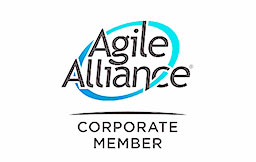 Vocalmeet Inc. is a learning vendor and operator of agile-courses.com. We are trusted by governments, non-profits and educational organizations to help train and certify millions of individuals across all sectors, including retail, health care, engineering, legal etc.
Vocalmeet Inc. is a learning vendor and operator of agile-courses.com. We are trusted by governments, non-profits and educational organizations to help train and certify millions of individuals across all sectors, including retail, health care, engineering, legal etc.What’s Included?
| Purchase Course | |
|---|---|
| 100% Online & Self-paced. Access your content anytime. | ✅ |
| About 15 hours of learning content, including high quality videos, quizzes and downloadable PDFs | ✅ |
| Certification exam included: Become Agile & Scrum Expert Certified (ASEC) | ✅ |
| Access to course materials | ✅ |
| Access to graded materials | ✅ |
| Over 100 practice questions for your own knowledge assessment and for your optional PMI-ACP® exam preparation | ✅ |
Complete Agile and Scrum Certification Program
Simply one of the best and most comprehensive Agile Project Management Course Available
Trusted Agile & Scrum Certification Course
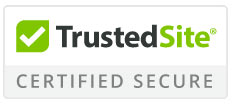

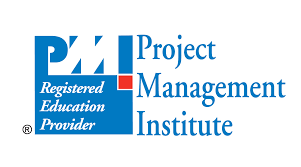
What Our Learners Are Saying
“It is great to learn from instructors with real life practical experience. The course was easy to follow along and gave me in depth understanding of agile. I look forward to sharing my knowledge with others on my team and to using this to advance my career.“
“I wanted to do one course that gave me all the key agile knowledge I needed instead of doing 3 or 4 courses. This course is really comprehensive. It starts with the simple stuff first and then goes to more advanced topics. I highly recommend it.“
“I have taken other agile courses before and this is by far one of the best. The instructor is great and explains the concepts clearly. I am new to agile and was worried that I would get lost. After taking this course I feel very confident that I can now start using agile techniques at work.”
Contact Us - Corporate Training
Contact Us - Group Training
Agile and Scrum Certification Training
15 Modules. Easy to Understand. Everything You Need to Get Certified Today!
